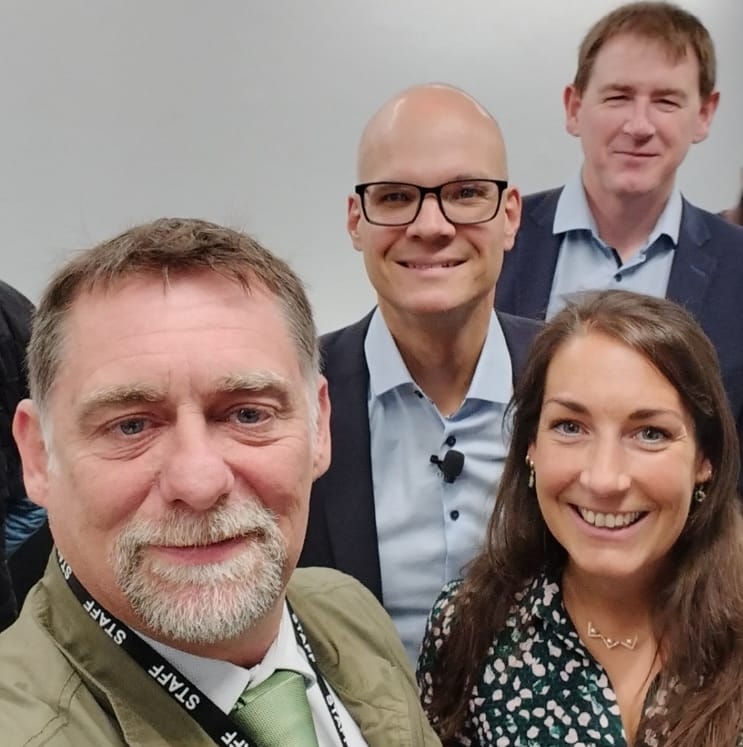About
This newsletter is designed for anyone with a stake in decarbonised heating, including homeowners, installers, and key organisations in the third sector.
For homeowners, it's your go-to guide for finding quality, trusted engineers and understanding best practices. With a new case study featured each week, you'll see tangible examples of what a great installation looks like and identify the skilled professionals behind them.
In an industry where certification and accreditation schemes often fail to guarantee quality, this newsletter serves as your filter, helping you to connect with the best in the business. The Guild of Master Heat Engineers is a key part of this. It's not just another certification; it's a peer-assessed network of the very best heating engineers.
Each case study will highlight the Guild engineer/s responsible for the installation, and will also list three other Master engineers/companies in different parts of the country. Over time, the website associated with this newsletter will quickly build a useful resource for consumers to find great engineers in their area. To learn more about the Guild and its mission, you can visit the Guild page.b
For the third sector, including NGOs, think tanks, and community hubs, this newsletter is a bridge to the engineers on the ground. By showcasing the valuable, real-world work being done, it offers a direct line of sight into the practical challenges and successes of decarbonisation. My aim is to help these vital organisations engage with engineers, breaking down growing silos and fostering a collaborative, informed approach to our shared energy future."
My story
I'm a heating engineer with a deep passion for innovation and the power of evidence-based practice. My family's history in the industry is extensive; my grandfather was regarded as one of Europe's leading combustion experts in the early days of central heating, and my family was also involved in heating technology manufacturing. This meant I grew up immersed in the marketing of our industry, and I've always had a keen interest in how it operates. My own journey began with an apprenticeship for the Ministry of Defence (MOD). I later used my degree in behavioural studies to get a job teaching Level 2 and 3 plumbing and heating, in what was the first prison in the UK to offer the qualification in 2006.

BetaTalk podcast
In 2019, I launched the BetaTalk podcast and BetaTeach at the same time. BetaTalk became my platform for providing clear, unbiased insights on heat pumps. The podcast won the British Renewable Energy Award for Communications in 2020.
While BetaTeach was founded to champion the philosophy of evidence-based practices in learning. My work has earned me a reputation as a trusted, independent voice, respected by everyone from engineers on the ground to government policymakers. When the podcast first started, it was described by Guy Newey, CEO of Energy Systems Catapult and former special adviser to two energy secretaries, as "the most important energy podcast in the UK." As Matthew Aylott, Senior Policy Advisor at the Department for Energy Security and Net Zero, has noted: "Nathan... has also found a way to bridge the language gap between policymakers and heating engineers."

Nathan meeting up with Charlotte Lee, CEO of Heat Pump Association, Paul Kenny, General Secretary of the European Heat Pump Association and Jan Rosenow at RAP.
I am often called an expert, but I don't see myself that way. I'm just in an incredible and unique position to be able to help disseminate who the true expert engineers are. This is a role I am uniquely suited for, given my background, and it is at the heart of everything I do.
Why BetaTalk and BetaTeach?
The idea for BetaTeach and BetaTalk was born from a frustration I saw in the industry: a lack of high-quality, trustworthy information. The podcast became my platform for delivering this information and building a community. At the same time, BetaTeach was created to champion the philosophy of peer-to-peer learning, a concept that has existed for centuries. I’ve long held the conviction that engineers at the top of their game know other top engineers. My role has been to help engineers and trainers understand and promote the importance of this peer-to-peer approach. Now, with this newsletter, I am providing a platform to formalise this idea, turning that philosophy into a tangible system of peer-assessed recognition.